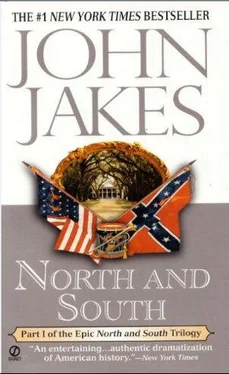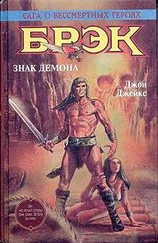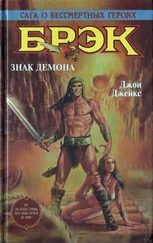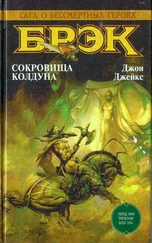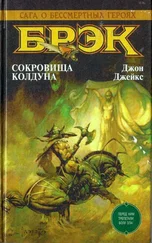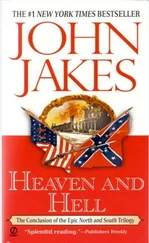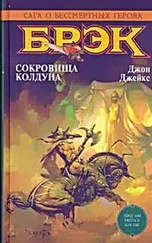Джон Джейкс - North and South
Здесь есть возможность читать онлайн «Джон Джейкс - North and South» весь текст электронной книги совершенно бесплатно (целиком полную версию без сокращений). В некоторых случаях можно слушать аудио, скачать через торрент в формате fb2 и присутствует краткое содержание. Жанр: Исторические приключения, на английском языке. Описание произведения, (предисловие) а так же отзывы посетителей доступны на портале библиотеки ЛибКат.
- Название:North and South
- Автор:
- Жанр:
- Год:неизвестен
- ISBN:нет данных
- Рейтинг книги:5 / 5. Голосов: 1
-
Избранное:Добавить в избранное
- Отзывы:
-
Ваша оценка:
- 100
- 1
- 2
- 3
- 4
- 5
North and South: краткое содержание, описание и аннотация
Предлагаем к чтению аннотацию, описание, краткое содержание или предисловие (зависит от того, что написал сам автор книги «North and South»). Если вы не нашли необходимую информацию о книге — напишите в комментариях, мы постараемся отыскать её.
North and South — читать онлайн бесплатно полную книгу (весь текст) целиком
Ниже представлен текст книги, разбитый по страницам. Система сохранения места последней прочитанной страницы, позволяет с удобством читать онлайн бесплатно книгу «North and South», без необходимости каждый раз заново искать на чём Вы остановились. Поставьте закладку, и сможете в любой момент перейти на страницу, на которой закончили чтение.
Интервал:
Закладка:
Madeline and Orry speculated that Justin for months had secretly been administering tincture of opium to dull her senses. Certainly it would have been possible with the connivance of the house slaves. The circumstantial evidence, as well as her new energy and restored clarity of mind, lent further credence to the theory. But they would never be sure.
In the evenings, after Charles had taken supper with them and left, Orry and Madeline liked to discuss the day's news from Charleston. There was precious little of it that could be termed reliable. One day the Mercury would proclaim that Anderson's garrison was about to be withdrawn; the next, the story would be characterized as just another rumor. It went on that way until mid-March, while Beauregard diligently rearranged the batteries, the better to bombard Sumter if bombardment became necessary.
Other rumors warned of relief flotillas steaming from the North. But the only representatives of the Yankee government who showed up were three men sent to assess Anderson's situation. One of the three was a Colonel Lamon, known to be a crony of Lincoln's.
Presumably the new President was making up his mind about the fort. Governor Pickens continued to insist that any attempt to provision or reinforce Sumter would be repulsed. President Davis also repeated his promise to take Sumter by force if it could not be won by negotiation.
Such pronouncements deepened Orry's gloom. He felt that the entire South was being led down a dark road toward an even more stygian darkness. His dreams were filled with drumming, screaming, gunfire; the fools who prated of glorious war on behalf of injured honor had never whiffed a day-old battlefield corpse.
The national situation turned his thoughts to the money George had put into the Star of Carolina . Guilt about the investment weighed more heavily on him with each day that passed. Early April brought a fresh spate of rumors, including a persistent one that a relief force had put out to sea from New York. Huntoon and the other fire eaters repeatedly called for action against the fort, in the harbor. All this pushed Orry to a decision.
Charles tried to argue him out of it, saying that if war erupted, he was absolved of responsibility. Orry countered that war absolved him of nothing, since George wouldn't have risked a penny in such a chancy enterprise were it not for personal friendship.
He took the train to Atlanta and remained there seventy-two hours. When he boarded another train to go home, he was carrying a small satchel.
He arrived in Charleston on the night of April 11. He trudged through milling crowds to Tradd Street. Cooper was astonished to see him.
"I went to Atlanta," Orry explained. "I mortgaged Mont Royal."
" What? " Cooper looked almost witless with surprise.
"We owe George part or all of his investment. We owe it now, before the firing starts. I raised six hundred and fifty thousand dollars." He nudged the satchel with his boot. "Cash."
"For the entire plantation? That's a fraction of what it's worth."
"I was lucky to get anything. I want as much from you as you can come up with, and I want it immediately."
"How do you propose I get that kind of money?"
"You have collateral. The shipping company and the James Island property are still valuable."
"Orry, the local banks won't give loans now."
"Try."
Cooper looked at his brother's worn face and saw no ground for argument. "All right." He sighed. "In the morning. I'll see to your room. You need some sleep."
Orry wakened in the dark, hearing thunderclaps. Red light glared through the shutters he had closed against the spring breeze. He thrust the shutters open. A shell arched high over the rooftops, then dropped.
He rushed downstairs. Cooper, Judith, and the children were at the windows. "What time is it?"
"Four, four-thirty, something like that," Judith answered in a sleepy voice.
"That sounds like the harbor batteries."
Another boom, another flush of red beyond the roofs and steeples. The floor shook. Cooper nodded and put his arms around his children in a protective way. Orry had never seen his brother so sad.
"It's all over. We're at war," Cooper said. After a moment he added, "I don't think the banks will be doing business this morning."
66
Major Anderson continued to return the vastly superior fire of Beauregard's guns until late on the afternoon of the twelfth, Friday. But the situation of the garrison was hopeless, and he and every other man in the fort knew it.
By some miracle, no one had died during the thirteen-hour bombardment. Anderson reckoned it was only a matter of time, however. He was thinking of asking for terms, particularly the right to give a formal military salute to the flag flying over the fort, the Stars and Stripes, before he ordered it lowered for the last time.
Up at Mont Royal, Orry was packing a small carpetbag with a razor, strop, soap, some shirts, and underdrawers. He threw the carpetbag into the carriage along with the satchel of money. The satchel was closed by a small, cheap lock, the key for which reposed in his watch pocket. The lock could be easily forced, but he figured he would attract less notice with two ordinary valises — one held in his hand, the other gripped between body and arm — than he would with one bag and a bulging money belt.
Madeline kissed him and tried to hide tears of anxiety. She knew the risk he was taking, traveling north just now, but she said nothing.
Not so Charles, who had reluctantly agreed to take him to the flag stop in the carriage.
"You shouldn't go, Orry. You owe him nothing." ''I owe him my life. Drive." He slammed the carriage door behind him.
Clarissa slipped up beside Madeline, whom she didn't recognize, and waved cheerfully to the departing stranger. Madeline wondered if she would ever see him again.
On Sunday a freight derailment in North Carolina blocked the northbound line and delayed Orry's train six hours. Passengers in the first-class coach talked of little besides the Sumter crisis. From the accents and the sentiments he heard, Orry judged most of the speakers to be Southern. A few hundred miles north that situation would reverse. He would need to be very careful about what he said, and to whom.
At twilight the track was cleared and the train chugged on. Soon they stopped at a station in a small piedmont town. The ticket agent was gesturing and shouting in the dusk.
"Sumter's fallen. Anderson pulled out. Word just flashed over the telegraph."
Cheering filled the coach. The vendor hawking day-old newspapers in the aisle gave Orry a suspicious stare when he didn't join in. Orry stared right back and the vendor moved on. It seemed there was no escape from the suspicion and enmity swirling through the land.
Next morning, in Petersburg, he left the train for a meal in the depot. He took the money satchel with him and placed it carefully between his feet under the table. The flyblown dining room raised echoes of a similar stop in Baltimore two years ago. This time, however, Orry encountered no hostility; people were too busy discussing yesterday's events in South Carolina. Several times he heard the word victory. Most of the customers agreed that Virginia's departure from the Union was inevitable now that a blow had been struck.
Shaking his head, he quickly finished his beef hash and corn grits. Then he bought a paper. When the train left Petersburg, a paunchy, well-dressed man sat down next to him. Orry paid no attention. He was immersed in the telegraphic dispatches on the front page. The day before, Sunday, Anderson had formally surrendered the fort in Charleston harbor. Ironically, it was during preparations for the ceremony that the first life had been lost.
Читать дальшеИнтервал:
Закладка:
Похожие книги на «North and South»
Представляем Вашему вниманию похожие книги на «North and South» списком для выбора. Мы отобрали схожую по названию и смыслу литературу в надежде предоставить читателям больше вариантов отыскать новые, интересные, ещё непрочитанные произведения.
Обсуждение, отзывы о книге «North and South» и просто собственные мнения читателей. Оставьте ваши комментарии, напишите, что Вы думаете о произведении, его смысле или главных героях. Укажите что конкретно понравилось, а что нет, и почему Вы так считаете.
